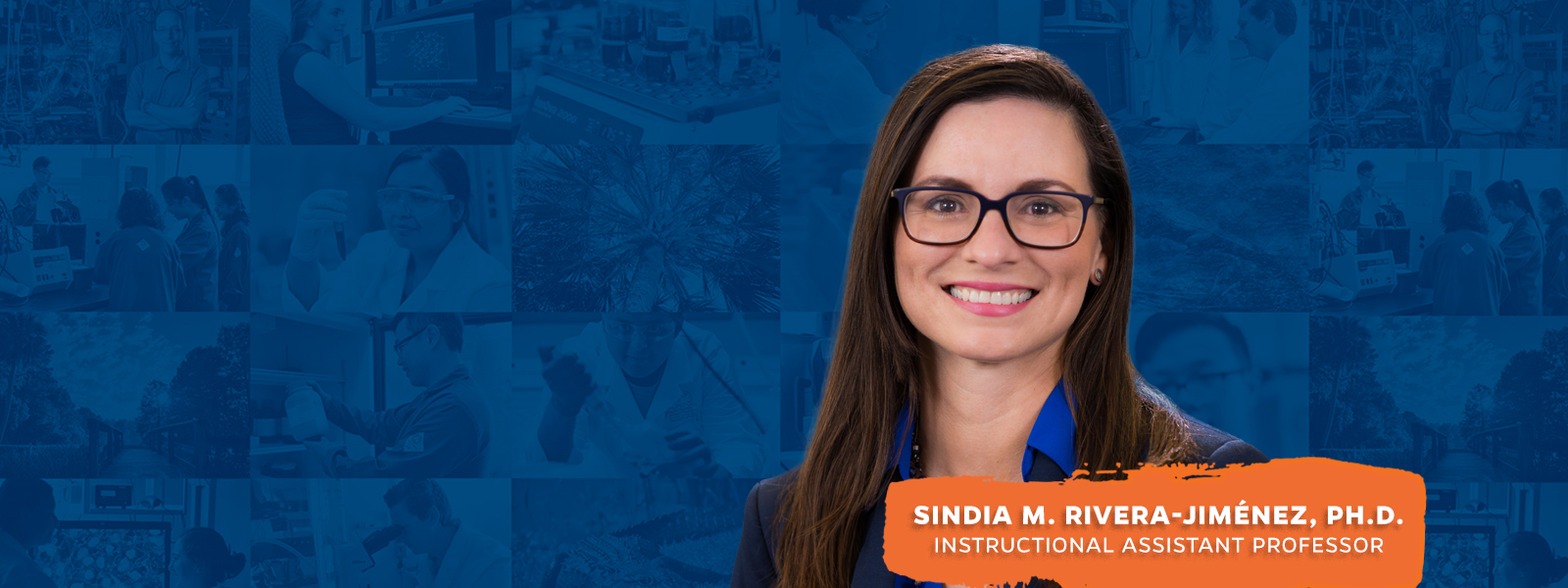Sindia M. Rivera-Jiménez, Ph.D., an instructional assistant professor at the University of Florida Department of Engineering Education and an affiliate faculty of the Department of Chemical Engineering, has received a National Science Foundation (NSF) grant to study the agency of engineering faculty involved in professional societies as they create meaningful transformations in their teaching practices while addressing the social implications of the engineering profession. Social implications in engineering may involve concepts of peace/non-peace, gender equality, care for the environment, poverty, public safety, and social justice.
“Previous studies have explored faculty viewpoints on what social implications mean for the engineering profession, and what challenges they have encountered in implementing changes in the engineering curriculum,” said Dr. Rivera-Jiménez. “However, there is still a need to uncover how engineering faculty develop strategies and the role their involvement in professional societies can play in these actions.”
Professional societies, such as The American Institute of Chemical Engineers (AIChE), are an important part of the network that fosters the professional foundation of engineers by shaping the technical direction of their disciplines, and the ethical responsibility of practicing engineers toward public health, safety, and welfare.
This project will advance the engineering education community’s knowledge of how communities of practice, supported by professional societies, can influence strategic agency among engineering faculty willing to positively change their students’ growth as engineers. In addition to refining a theoretical framework to explain strategic agency in engineering communities, this work will produce best practices where learning interventions and activities are used to address social implications in the engineering field. The findings around strategic agency are expected to impact other engineering areas where a community composed of individuals (e.g., faculty, students, administrators, industry, design teams, research laboratories) collaborate to make a radical change in their practices.
“In a data-driven field such as engineering, narrative inquiry research methods provide the opportunity to place the experiences of chemical engineering faculty at the forefront and find evidence-based strategies that can be shared with other engineering disciplines,” said Dr. Rivera-Jiménez. Furthermore, while indirect, findings of this work shared via AIChE and the American Society of Engineering Education (ASEE) can influence approximately 60,000 faculty members worldwide using novel dissemination practices such as workshops, content repositories, and podcasting. A large percentage of these faculty will be in an active position to enact meaningful changes in their classrooms, impacting an even more significant number of students. As an elected member of AIChE Societal Impact Operation Council, elected member of the of directors for the AIChE Education Division, and elected board member of the ASEE Equity, Culture, and Social Justice, Dr. Rivera-Jiménez feels she’s in a unique position to make a significant impact with the findings of this project.
Dr. Rivera-Jiménez’s research includes agency in engineering communities (e.g., faculty, design teams, organizations), action research, curricular implementation of problem-solving pedagogies in process design using simulations, collaborative and inclusive environments in engineering teams, K-12 Outreach in product design, and professional development for industry and academia.
The UF Department of Engineering Education specializes in engineering education research and the delivery of innovative and effective instructional methods in engineering undergraduate courses, as well as assessment. Faculty perform research into the effectiveness of learning methods, and continually strive to improve and adapt course content and delivery methods to serve students and faculty throughout the Herbert Wertheim College of Engineering at the University of Florida.

